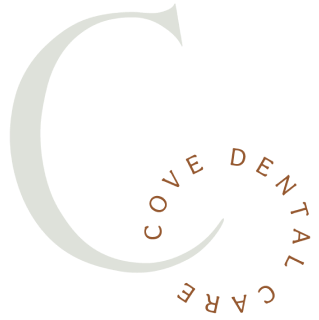Tips For Emergency Dental Care: How to Manage Pain and Discomfort


Imagine biting into your favorite snack, and suddenly, a sharp pain shoots through your mouth. Or waking up in the middle of the night with a throbbing toothache that keeps you from sleeping. Dental emergencies like these can strike without warning, leaving you in pain and unsure of what to do next. Knowing how to manage these situations effectively can make a significant difference, easing your discomfort and preventing further complications. This blog is your guide to handling dental emergencies, offering practical tips and expert advice to help you stay prepared and protect your oral health. Read on to discover how to manage dental pain and discomfort with confidence.
Recognizing Common Dental Emergencies
Toothache
Toothaches are often caused by dental decay, infection, or an abscess. The pain can range from mild to excruciating and might be accompanied by swelling, fever, or a foul taste in the mouth. Immediate attention is required to prevent the condition from worsening.
Chipped or Broken Teeth
Teeth can chip or break due to trauma, biting hard objects, or even cavities weakening the tooth structure. A broken tooth can expose nerves, causing intense pain and increasing the risk of infection. It’s essential to see a dentist as soon as possible.
Knocked-Out Tooth
A knocked-out tooth is a dental emergency that requires immediate care. The chances of saving the tooth are highest within the first hour of the incident. Handle the tooth by the crown, not the root, and try to place it back in the socket or store it in milk until you can see a dentist in Easley.
Abscess
An abscess is a severe infection around the root of a tooth or in the gum. It can cause severe pain, swelling, fever, and a bitter taste in the mouth. This condition can be life-threatening if not treated promptly.
Immediate Steps to Manage Dental Pain and Discomfort
Stay Calm
Remaining calm is crucial in managing dental emergencies. Panicking can exacerbate the situation and make it harder to take appropriate action. Take deep breaths and focus on addressing the issue at hand.
Over-the-Counter Pain Relief
Over-the-counter pain relievers such as ibuprofen or acetaminophen can help manage dental pain temporarily. Always follow the recommended dosage and avoid placing aspirin directly on the affected tooth or gums, as it can cause burns.
Cold Compress
Applying a cold compress to the outside of your mouth can help reduce swelling and numb the area, providing temporary relief from pain. Use the cold compress for 15-minute intervals.
Saltwater Rinse
A saltwater rinse can help clean the affected area and reduce swelling. Mix a teaspoon of salt in a glass of warm water and swish it around your mouth for about 30 seconds before spitting it out.
Preparing for a Dental Emergency
Emergency Dental Kit
Having an emergency dental kit at home can be incredibly beneficial. Include items such as dental floss, a small container with a lid, pain relievers, gauze, and a cold pack. These items can help you manage the situation until you can see a dentist.
Contact Information
Keep your dentist’s contact information readily available. In the event of an emergency, you should know who to call for immediate advice and care.
Preventing Dental Emergencies
Regular Dental Check-Ups
Regular dental check-ups are vital in preventing dental emergencies. Routine exams can identify potential issues before they become severe problems, allowing for timely treatment.
Proper Oral Hygiene
Maintaining proper oral hygiene can significantly reduce the risk of dental emergencies. Brush your teeth at least twice a day, floss daily, and use mouthwash to keep your mouth clean and healthy.
Avoid Risky Behaviors
Avoiding behaviors that can harm your teeth, such as chewing on ice, opening packages with your teeth, or playing sports without a mouthguard, can help prevent dental injuries.
When to Seek Emergency Dental Care
Severe Pain
If you experience severe, unrelenting pain that does not respond to over-the-counter pain relief, it’s crucial to seek emergency dental care. This could indicate a serious issue that needs immediate attention.
Swelling and Fever
Swelling in the face or gums, especially when accompanied by fever, could signal an infection. Infections can spread quickly and become life-threatening, so prompt care is essential.
Persistent Bleeding
If you have persistent bleeding in your mouth that does not stop after applying pressure for 15 minutes, you should seek emergency dental care. This could be a sign of a more serious problem.
Emergency Dentist Services
Emergency dentists are trained to handle a wide range of dental emergencies. They can provide immediate relief from pain, treat infections, and perform necessary procedures to save teeth. It’s important to know that an emergency dentist can offer services such as:
- Pain Management: Administering pain relief and performing procedures to address the source of the pain.
- Tooth Repair: Repairing or restoring damaged teeth, whether it’s a filling, crown, or more extensive treatment.
- Infection Control: Treating infections with antibiotics and draining abscesses if necessary.
Long-Term Management of Dental Issues
Follow-Up Care
After receiving emergency dental treatment, follow-up care is essential to ensure complete healing and to address any underlying issues. Your dentist will provide specific instructions for care and schedule any necessary follow-up appointments.
Addressing Underlying Causes
Understanding and addressing the underlying causes of your dental emergency can help prevent future issues. For example, if a toothache was caused by decay, your dentist will work with you to improve your oral hygiene and dietary habits to prevent further decay.
Tips for Managing Dental Anxiety
Dental anxiety is common and can make it challenging to seek timely care, especially during an emergency. Here are some tips to manage anxiety:
Communicate with Your Dentist
Let your dentist know about your anxiety. They can offer reassurance, explain procedures in detail, and take steps to make you more comfortable during treatment.
Practice Relaxation Techniques
Techniques such as deep breathing, meditation, or listening to calming music can help reduce anxiety before and during your dental visit.
Bring a Support Person
Having a trusted friend or family member accompany you to your dental appointment can provide emotional support and help alleviate anxiety.
Knowing When to Visit an Emergency Room
In some cases, a dental emergency may require a visit to the emergency room. This is typically necessary if you experience:
- Severe Bleeding: Uncontrolled bleeding that does not stop with pressure.
- Difficulty Breathing or Swallowing: These symptoms could indicate a serious infection that needs immediate medical attention.
- Trauma to the Face or Jaw: Significant injuries to the face or jaw may require urgent medical evaluation and treatment.
The Role of Tele-Dentistry
Tele-dentistry can be a valuable resource during a dental emergency. It allows you to consult with a dentist remotely, receive immediate advice, and determine the urgency of your situation. This can be particularly useful if you’re unable to visit a dentist in person right away.
Preparing for Your Emergency Dental Visit
Documenting Symptoms
Before your emergency dental visit, document your symptoms in detail. Note when the pain started, its intensity, any swelling or bleeding, and any actions you’ve taken to manage the pain. This information will help your dentist provide the most effective care.
Bringing Necessary Information
Bring any relevant medical history, a list of medications you’re taking, and your dental insurance information to your appointment. This will help streamline the process and ensure you receive the appropriate treatment.
Financial Considerations
Dental emergencies can be unexpected and may lead to unplanned expenses. It’s important to understand your dental insurance coverage and any out-of-pocket costs you might incur. Some dental offices offer payment plans or financing options to help manage these expenses.
The Importance of Timely Action
Taking swift action during a dental emergency can significantly impact the outcome. Quick responses can prevent complications, reduce pain, and increase the chances of saving a damaged tooth. Knowing how to manage pain and discomfort effectively is key to navigating dental emergencies with confidence.
Final Thoughts
Dental emergencies are unpredictable, but being prepared can make a difference in managing pain and discomfort. Remember to stay calm, take immediate action, and seek professional help when necessary. For residents of Easley, having access to an experienced emergency dentist ensures that you are ready to handle any dental crisis that comes your way. With these tips and strategies, you can better navigate the challenges of dental emergencies and maintain your oral health. And for those in need, finding an emergency dentist in Easley can be a lifesaver in times of dental distress.
